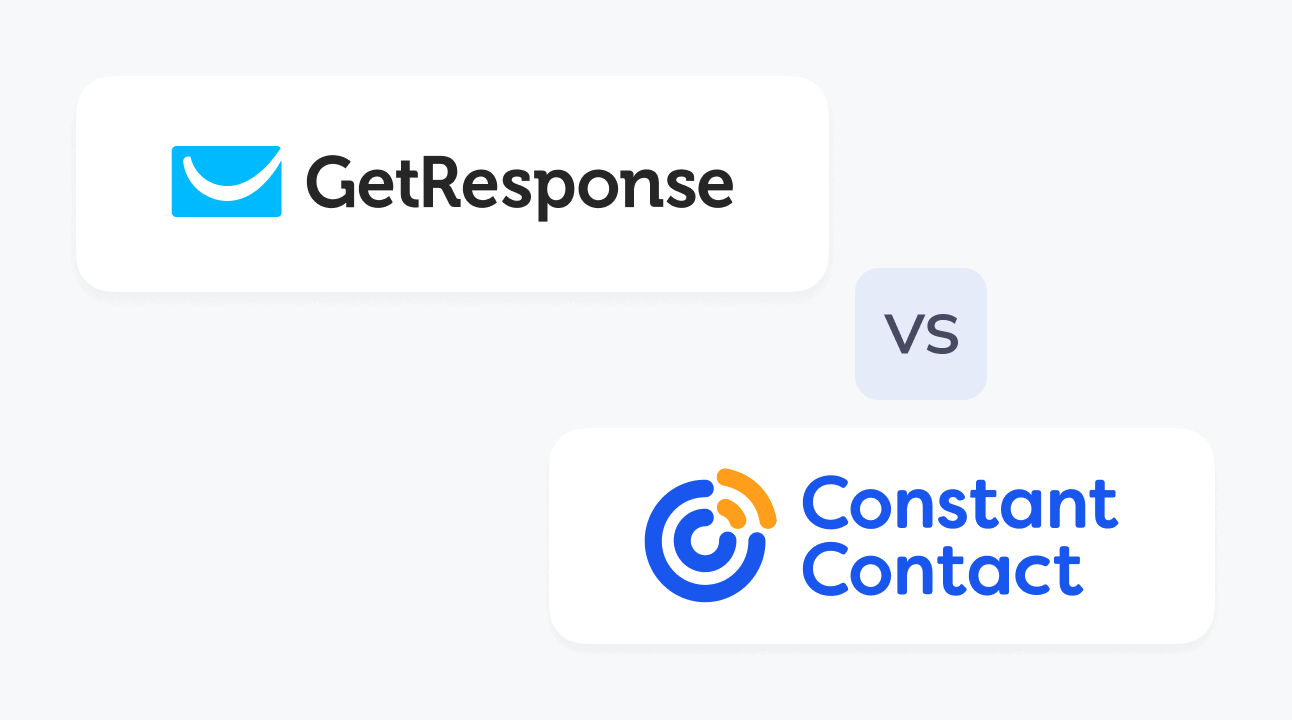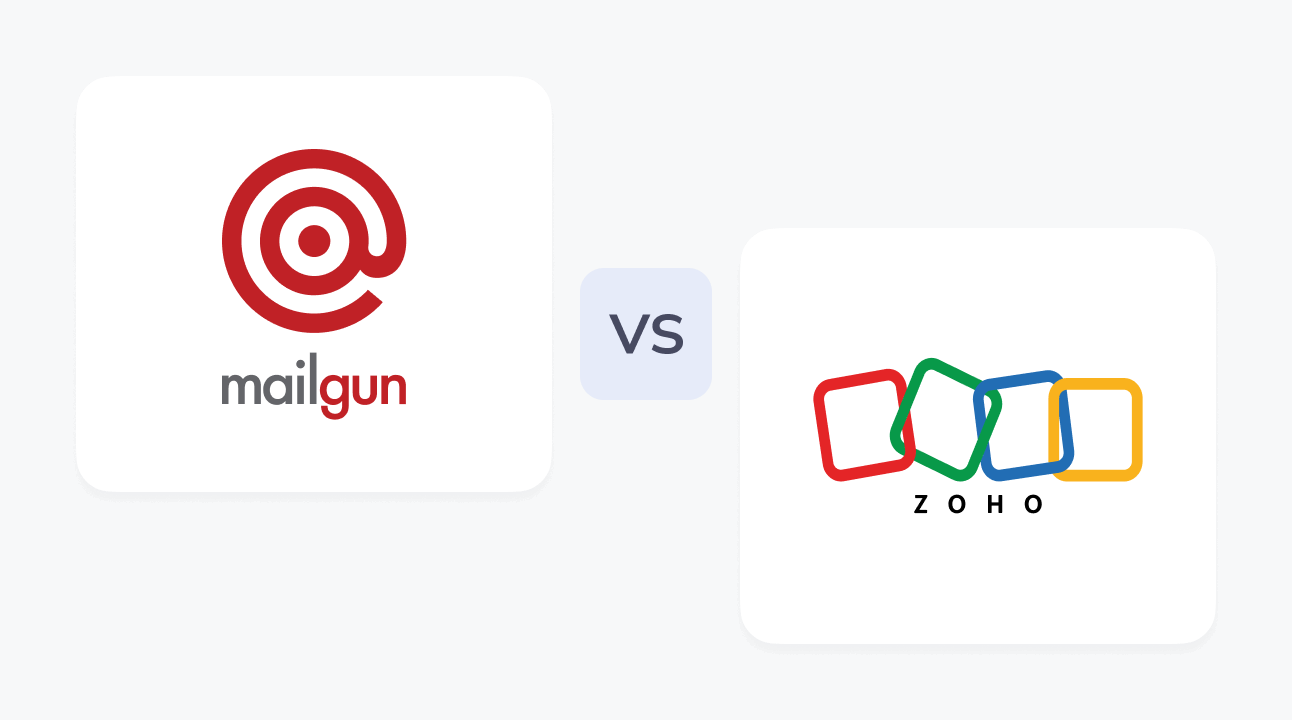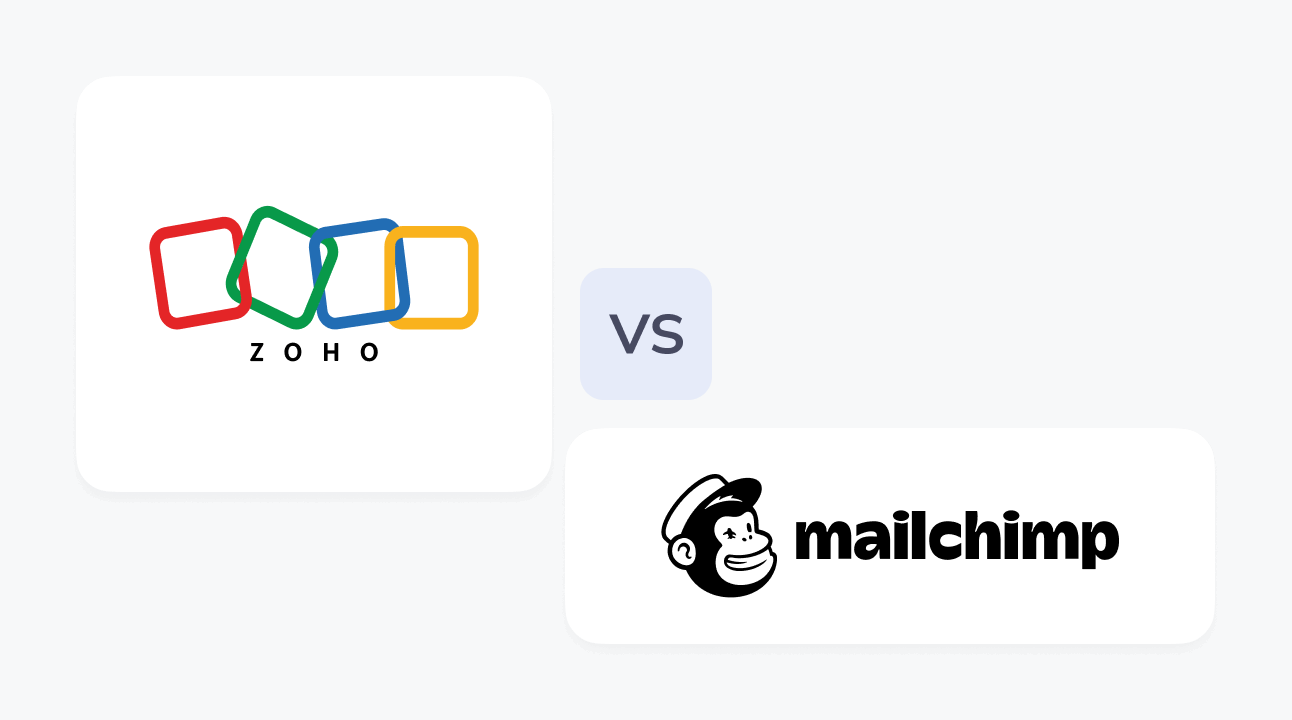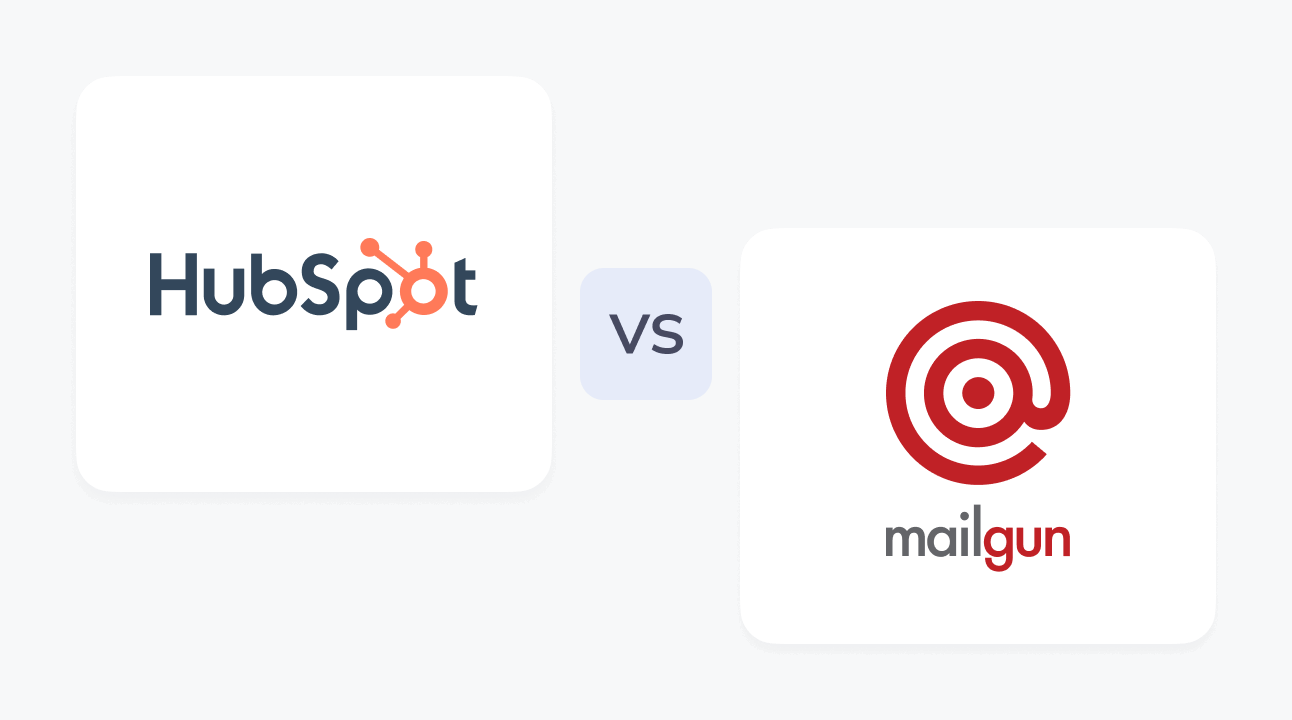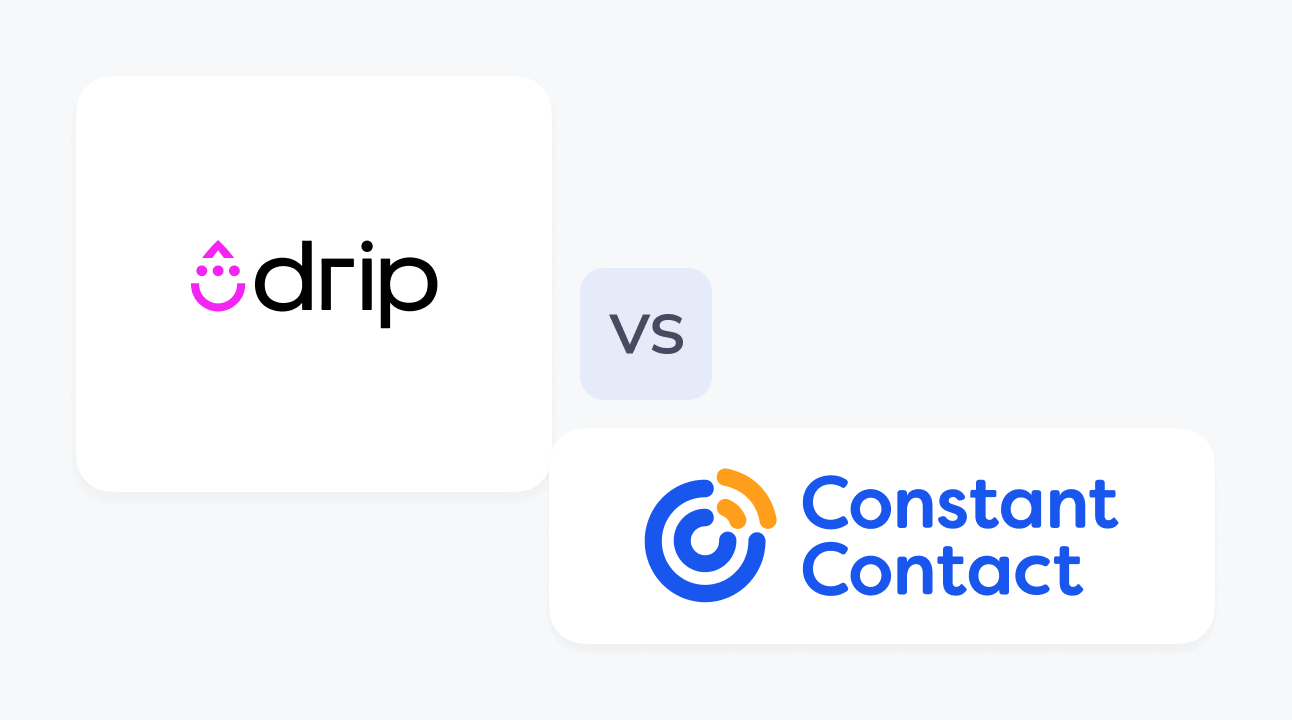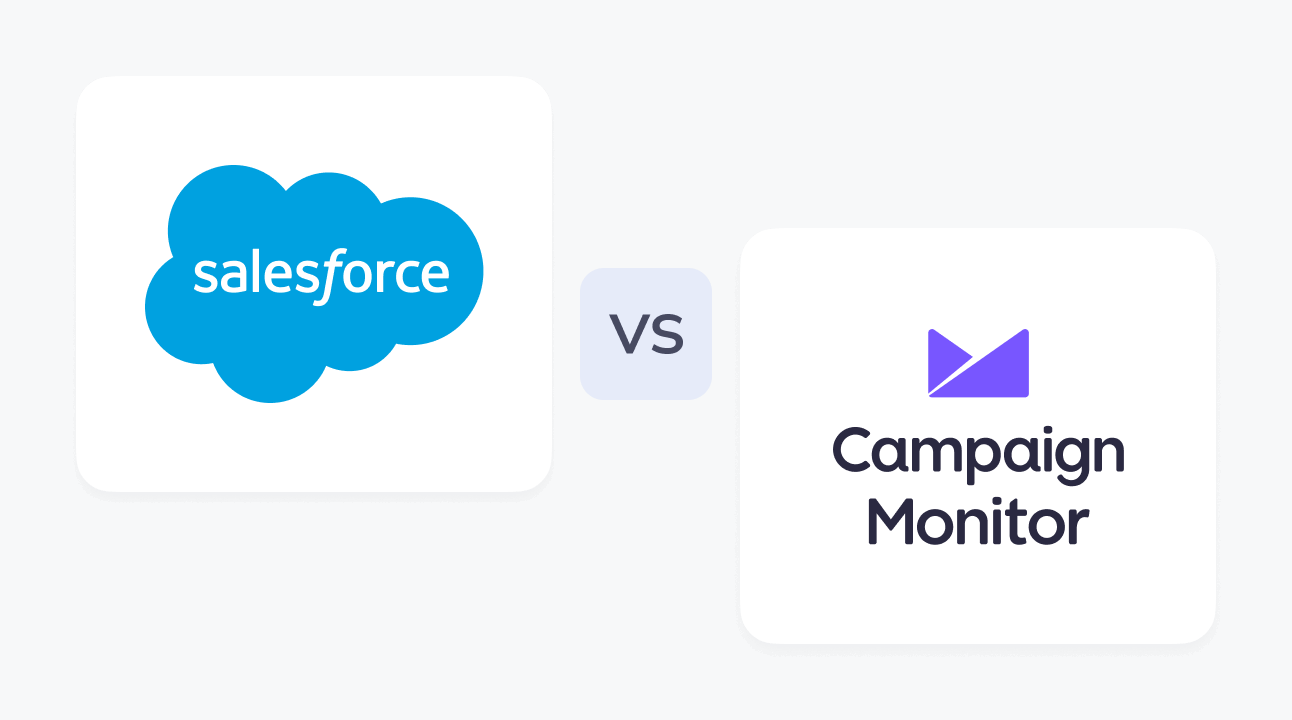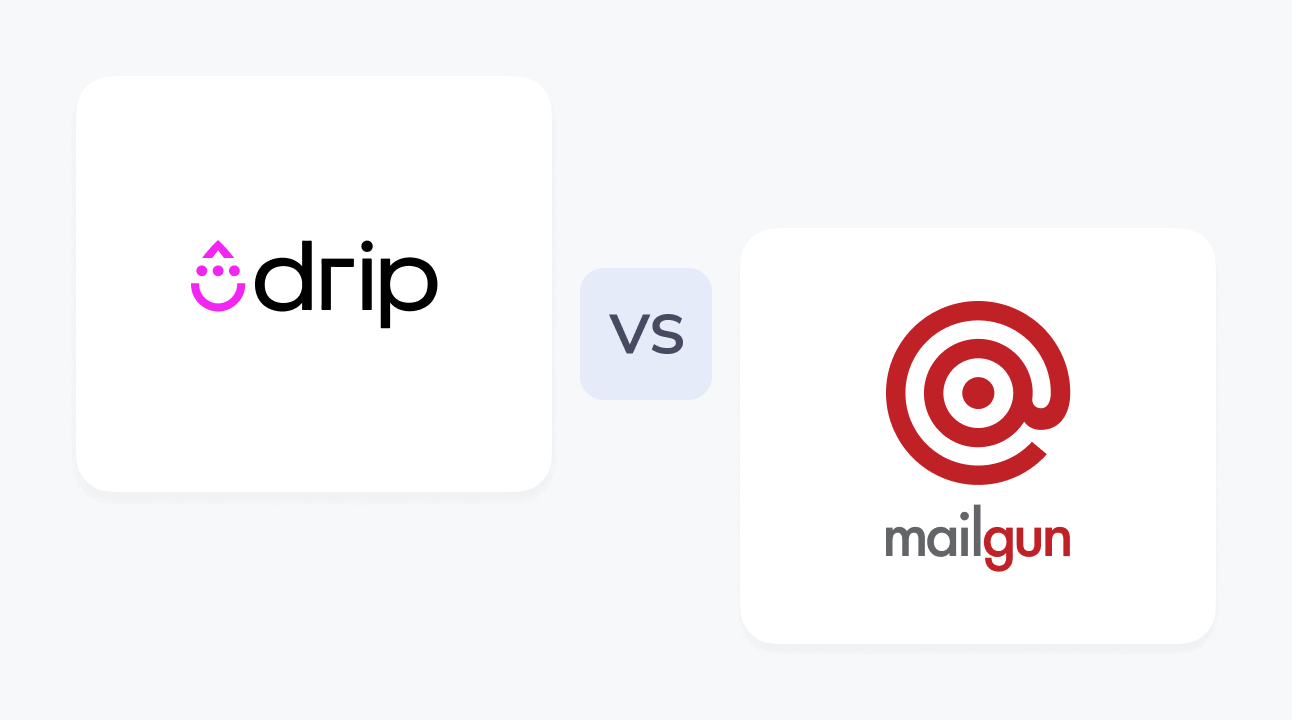
Drip vs Mailgun
Trying to choose between Drip vs Mailgun as your email marketing software? Here's when to choose each tool – and the pros and cons to know about.

Drip
- 4.4/5 on GetApp
- 4.4/5 on Capterra
- 4.4/5 on G2
Drip is a multi-channel marketing automation tool for e-commerce.
Pricing
Dynamic, depends on the contact list and email volume, starts from $39 for 1–2500 people in the list + unlimited sends
Key features
- Marketing automation
- Intuitive email builder
- Onsite campaigns
- Campaign analytics
- Smart segmentation
Support
Email and live chat, designated schedule, the availability of these channels depends on your pricing plan

Mailgun
- 4.2/5 on TrustPilot
- 4.3/5 on Capterra
- 4.3/5 on G2
An email marketing platform equipped with dedicated delivery and validation tools. Features include transactional emails, email APIs, and SMTP relays.
Pricing
Starts at $35 a month for 50,000 emails/month
Key features
- Drag-and-drop email builder
- Personalization
- Analytics
- Email validations
- Transactional emails
- Integrations with various services via APIs
Support
Ticket support on all plans, chat and phone on weekdays for higher plans.
Drip was founded in 2012 in Minneapolis, the US, and acquired by Leadpages in 2016. The company’s main goal is empowering small e-commerce businesses.
Founded in 2010 by Ev Kontsevoy and Taylor Wakefield. In 2021, Mailgun was acquired by Sinch. Company headquarters are in San Antonio, Texas.
The main focus of Drip is sales funnel automation, and the automation UI is tricky, which makes the platform less beginner-friendly than its competitors
The service is aimed at developers and people with advanced coding knowledge, so it’s not easy to use for the general public.
Community-focused DTC and e-commerce businesses
Large companies with extensive mailing lists that require both marketing and transactional emails, deliverability monitoring, and a stable technological solution.
Drip doesn’t offer a free plan but there’s a 14-day free trial with no credit card required for registration.
No free plan, only a 30-day free trial paid plans.
Dynamic pricing depends on list size and sending volume.
$39–89/month: up to 5,000 contacts, unlimited email sends, full functionality, free migration, email support
$99–409/month: up to 30,000 contacts, unlimited email sends, full functionality, free migration, email and chat support
$489–1899/month: up to 170,000 contacts and up to 2,040,000 email sends, full functionality, free migration, email and chat support, dedicated Customer Success manager
Custom pricing: custom number of contacts, up to 120,000,000 email sends, all the product features, support, and a dedicated manager included in the previous tier
Billed monthly:
- Foundation starting at $35 for 50,000 emails a month. Includes APIs, webhooks, ticket support.
- Scale starting at $90 for 100,000 emails a month. Includes everything from the previous plan and 5,000 email validations, live chat and phone support, dedicated IP pools.
- Enterprise with custom pricing. Includes everything from the other plans and dedicated support, comprehensive onboarding, early access to new features.
Extra emails and email validations available for additional price
Email support:
- Available for all paying customers
- 9 am to 5 pm CT, Monday through Friday
Live chat support:
- Available for Drip customers on the $99/mo + plans
- 9 am to 5 pm CT, Monday through Friday
Ticket support with 24-hour response time, Knowledge Center, Comprehensive SDKs, Customer Feedback Forum, and Documentation available on all plans.
Chat and phone support are available on the Scale and Enterprise plans. Chat support is available Monday through Friday from 7 am to 7 pm CST. Phone support is available Monday through Friday from 8 am to 5 pm CST.
On the Enterprise plan, users also have access to managed support.
- Point-and-click email editor
- Dynamic content in emails
- A/B testing
- Email automation
- Free migration service
- List segmentation and contact tagging
- Pop-ups and signup forms
- Email analytics including conversion rates and revenue
- SMS marketing
- Drag-and-drop email builder and templates
- SMTP services for sending transactional emails
- Email validations
- Email previews on 100+ devices and clients
- Inbox placement testing
- Send time optimization
- Email analytics
- Integrations with various services via APIs
- Additional email optimization services for monitoring
- 51 ecommerce email templates for holidays, promotion, and other occasions
- 4 empty templates with different amount of columns
- 1 plain text email template
- Basic 7 templates with different layouts.
- Mailgun Templates API allows to integrate other templates into the service and manage the existing ones.
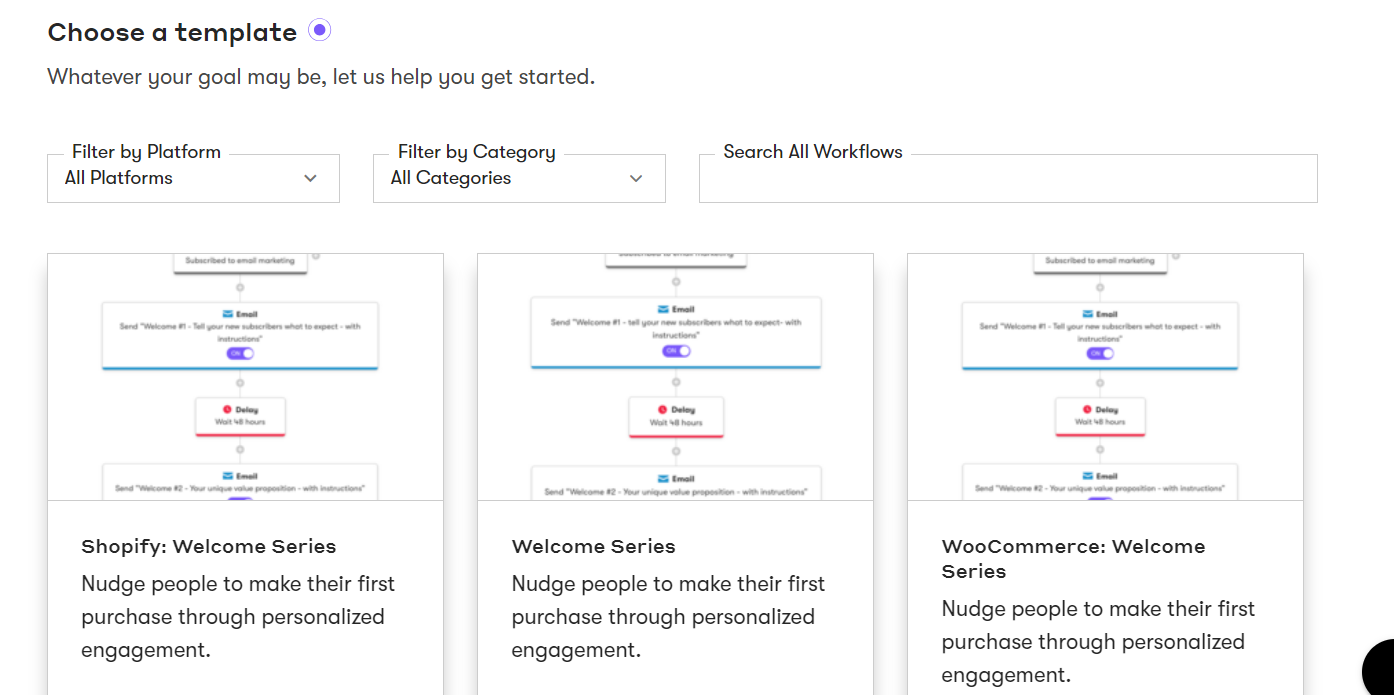
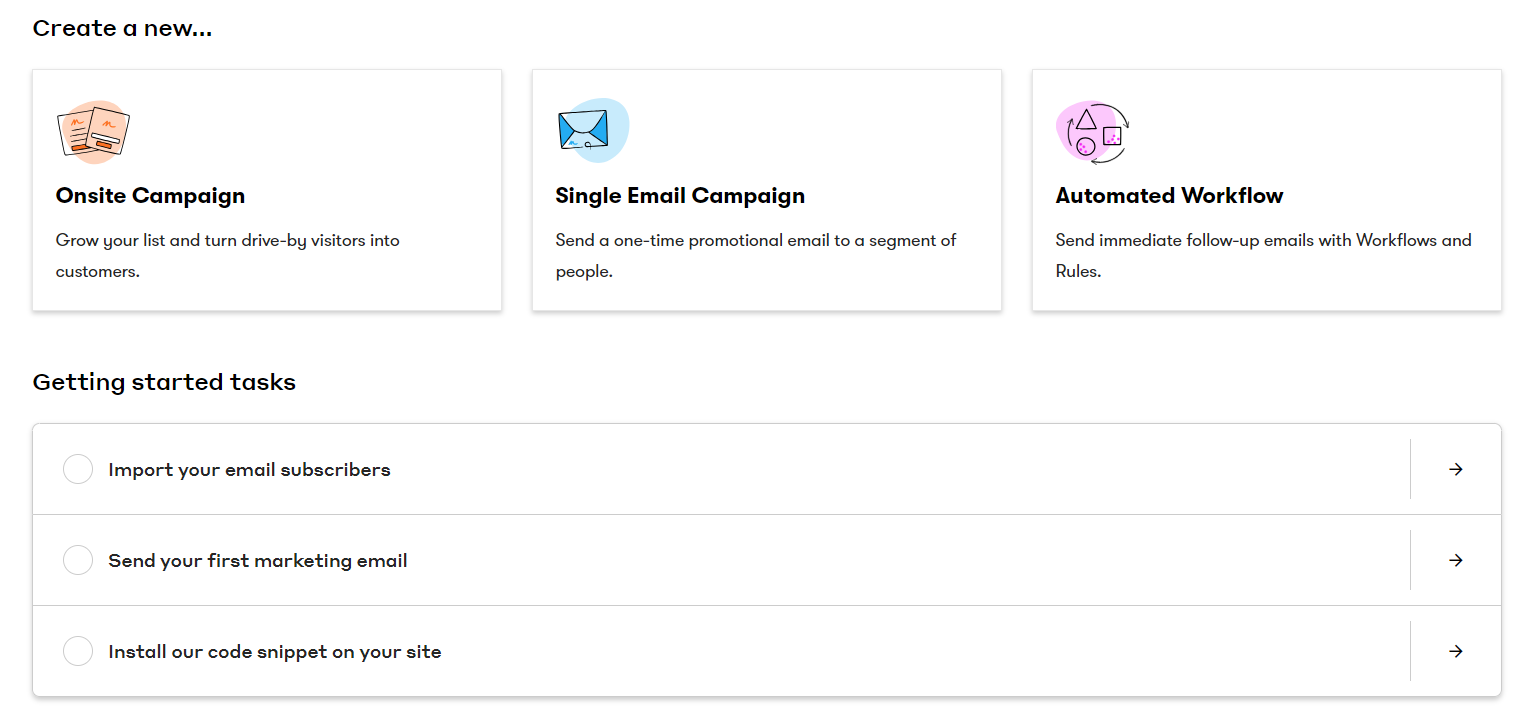






150+ integrations with e-commerce platforms like Shopify, CRMs like Zoho CRM, other ESPs like MailerLite, numerous event management tools, sales software including TikTok Lead Generation, social media, SMS marketing tools, and more
64 integrations including WordPress, Zendesk, Webflow, Airtable, Google Sheets, Jotform, and more.
- Web app only but it’s optimized for mobile browsers
- Available only on the web.
- No installable solution.
English
English
39 automation templates from welcome to post-purchase designed for different e-commerce platforms: Shopify, WooCommerce, Magento, and BigCommerce. Drip also allows you to use the API of your custom e-commerce website built from scratch. The “Rules” feature allows users to create custom automation sequences with custom event triggers.
Basic automations using API (requires coding)
- Good tools for list management and targeted campaigns
- All the metrics in one place
- Designed with e-commerce in mind
- Powerful automation
- Useful API that easily integrates into other services
- Deliverability features
- Reliability and data protection
- Helpful support
- Complex learning curve for new users
- Expensive compared to other ESPs
- No drag-and-drop automation workflow builder
- Slightly convoluted for one-off or otherwise not behavior-based campaigns
- Learning curve for beginners
- Interface is not very intuitive
- Stiff pricing structure
They are constantly improving their tools. It never feels stagnant or lacking in critical features. Their prebuilt workflows make getting started very easy and you can start driving more revenue almost immediately.
Actually, you can set up A/B testing, but you have to hack your way with liquid language. While this is no problem for really advanced users, 90% of the users won’t know how to do this.
I personally prefer to build everything that is automation related inside workflows. Even with simple sequence emails I can do in campaigns, I prefer to do them in workflows. It just depends on how advanced you want to get with automation.
If you want simple email series, without any branching logic (like if the user does this, send this), use campaigns. If you want to go more advanced than this, use workflows.
Easy to use and reliable. The reporting features are very helpful too. The option for dedicated IP is great for businesses sending lots of emails. The email verification API also helps us protect our domain reputation.
What do you dislike about Mailgun?
Only one API key. I wish we could generate multiple ones with different access levels so we could easily revoke them if anything goes wrong. I wanted to have one key for email verification only, and one key for each application that uses the email API.
You can integrate it to almost anything. The way that it manages the stream of emails it must send out is what makes this tool almost irreplaceable.
What do you dislike about Mailgun?
Hard to find something to not like about this. It is a very useful tool, it's not for novices. You need to know about email campaigns to know how to make best of it.
What problems is Mailgun solving and how is that benefiting you?
Keeping me out of spam list for the most part. Keeping our email in the green zone when it comes to spam detectors. It makes it easy to remove any bad emails, dnc's, and gauge things correctly.
*This information is current as of 01/20/2025. While we regularly update our articles, it`s possible that this article may not contain some of the latest information.
